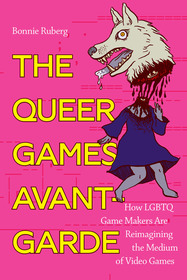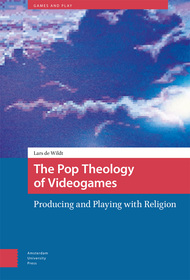
A Precarious Game
The Illusion of Dream Jobs in the Video Game Industry
-
20% KEDVEZMÉNY?
- A kedvezmény csak az 'Értesítés a kedvenc témákról' hírlevelünk címzettjeinek rendeléseire érvényes.
- Kiadói listaár GBP 19.99
-
9 550 Ft (9 095 Ft + 5% áfa)
Az ár azért becsült, mert a rendelés pillanatában nem lehet pontosan tudni, hogy a beérkezéskor milyen lesz a forint árfolyama az adott termék eredeti devizájához képest. Ha a forint romlana, kissé többet, ha javulna, kissé kevesebbet kell majd fizetnie.
- Kedvezmény(ek) 20% (cc. 1 910 Ft off)
- Kedvezményes ár 7 640 Ft (7 276 Ft + 5% áfa)
Iratkozzon fel most és részesüljön kedvezőbb árainkból!
Feliratkozom
9 550 Ft

Beszerezhetőség
Becsült beszerzési idő: A Prosperónál jelenleg nincsen raktáron, de a kiadónál igen. Beszerzés kb. 3-5 hét..
A Prosperónál jelenleg nincsen raktáron.
Why don't you give exact delivery time?
A beszerzés időigényét az eddigi tapasztalatokra alapozva adjuk meg. Azért becsült, mert a terméket külföldről hozzuk be, így a kiadó kiszolgálásának pillanatnyi gyorsaságától is függ. A megadottnál gyorsabb és lassabb szállítás is elképzelhető, de mindent megteszünk, hogy Ön a lehető leghamarabb jusson hozzá a termékhez.
A termék adatai:
- Kiadó Cornell University Press
- Megjelenés dátuma 2020. március 15.
- ISBN 9781501746536
- Kötéstípus Puhakötés
- Terjedelem222 oldal
- Méret 229x152x16 mm
- Súly 454 g
- Nyelv angol 45
Kategóriák
Hosszú leírás:
A Precarious Game is an ethnographic examination of video game production. The developers that Ergin Bulut researched for almost three years in a medium-sized studio in the U.S. loved making video games that millions play. Only some, however, can enjoy this dream job, which can be precarious and alienating for many others. That is, the passion of a predominantly white-male labor force relies on material inequalities involving the sacrificial labor of their families, unacknowledged work of precarious testers, and thousands of racialized and gendered workers in the Global South.
A Precarious Game explores the politics of doing what one loves. In the context of work, passion and love imply freedom, participation, and choice, but in fact they accelerate self-exploitation and can impose emotional toxicity on other workers by forcing them to work endless hours. Bulut argues that such ludic discourses in the game industry disguise the racialized and gendered inequalities on which a profitable transnational industry thrives.
Within capitalism, work is not just an economic matter, and the political nature of employment and love can still be undemocratic even when based on mutual consent. As Bulut demonstrates, rather than considering work simply as a matter of economics based on trade-offs in the workplace, we should consider the question of work and love as one of democracy rooted in politics.
TöbbTartalomjegyzék:
Introduction: For Whom the Love Works in Video Game Production?
1. The Unequal Ludopolitical Regime of Game Production: Who Can Play, Who Has to Work?
2. The End of the Garage Studio as a Technomasculine Space: Financial Security, Streamlined Creativity, and Signs of Friction
3. Gaming the City: How a Game Studio Revitalized a Downtown Space in the Silicon Prairie
4. The Production of Communicative Developers in the Affective Game Studio
5. Reproducing Technomasculinity: Spouses' Classed Femininities and Domestic Labor
6. Game Testers as Precarious Second-Class Citizens: Degradation of Fun, Instrumentalization of Play
7. Production Error: Layoffs Hit the Core Creatives
Conclusion: Reimagining Labor and Love in and beyond Game Production







